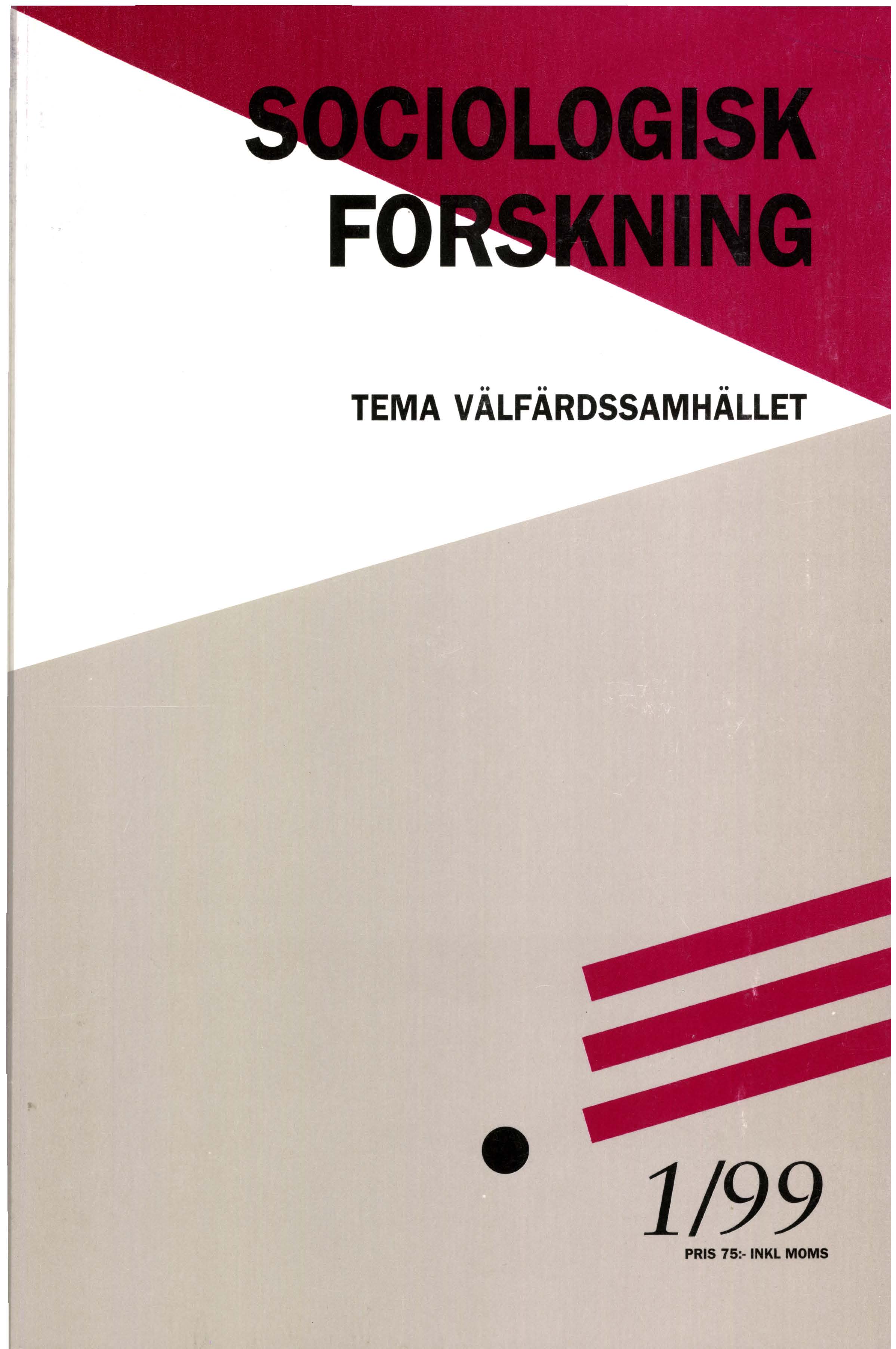Att begå samhällsförändring: Välfärdsstatens sociologi och dess sociologer
DOI:
https://doi.org/10.37062/sf.36.18481Abstract
To commit social change: the sociology and the sociologists of the welfare state
The article is an analysis of processes of social change in the Swedish society during the 1990’s. Changes in systems of production and changes in identity processes are seen as central components for understanding the transformation of the welfare state. These processes of social change can be sociologically understood by reference to the important impact on social policy of current theories of economic growth as well as the relationship between economic theories and theories of the state. Changes in the processes of production are discussed by looking at theories of marginalisation and social exclusion as well as problems of work and maintaining a liveable income. Changes in the creation and development of identity are discussed by focusing on the public identity as it is formed by citizenship and the democratic development of the individual as a unique subject. The public identity, which is a collective identity, is analysed against a market identity where the individual is defined as a consumer or as a client and thereby objectified and isolated. The framework for the article is a four-step model of welfare state transformation which occured in Sweden as well as in other countries during the last decade. The first step is increased inequality in wages as well as income distribution, the second step is narrowing of social rights and entitlements, the third step is lowering wages, and the last step is a redefinition of the concept of employment.
Downloads
Published
How to Cite
Issue
Section
License
All content in Sociologisk Forskning is published with immediate open access, under the Creative Commons license CC BY-NC-ND 4.0.
All content may be read, downloaded, shared and printed for non-commercial purposes, free and without fees. Contents may not be altered. When content is reused, author, source and a link to the copyright licence must be provided. The author retains copyright to their content. No publication fees are charged.





